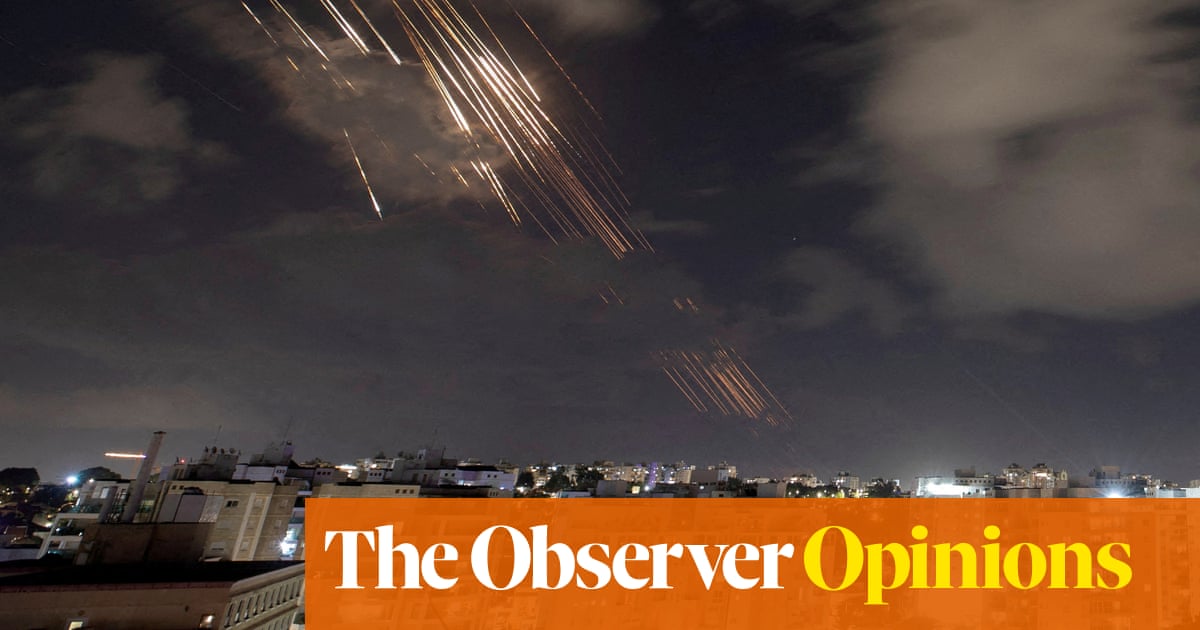World
A pause for peace is the best the world can hope for in the Middle East’s war without end | Simon Tisdall

So it’s finally happening. The wider Middle East conflict that so many feared is igniting. Almost exactly a year after Hamas’s 7 October terrorist atrocities, Israel is fighting on multiple fronts. Iran is now the principal adversary. Israeli leaders, including the prime minister, Benjamin Netanyahu, maintain that it always was. Netanyahu has long sought this showdown.
Self-deluding boasts that Israel is “winning”, bruited about after the assassination of Hezbollah chief Hassan Nasrallah, drown out calls to halt the madness. Despite their otiose talk of changing the regional balance of power, Netanyahu, his far-right allies and generals lack a credible, long-term political strategy. Their whack-a-mole tactics condemn Israel and neighbours to war without end.
The same may be said of Ayatollah Ali Khamenei and the religious extremists who dominate Iran’s regime – and the surviving leaders of Iran’s proxies Hamas and Hezbollah. Nor should western reactionaries such as Donald Trump escape blame. All contribute to a destructive continuum of confrontation, violence and misery that is intensifying once again.
On every side, the self-fulfilling prophecies and divisive agendas of regressive, intolerant forces are acted out in blood. Hard-right fanatics typically expect the worst, reject conciliation and compromise, stick to their guns. And, sure enough, the worst happens. Moderate voices, such as Iran’s new president, are shouted down. Hapless Joe Biden is humiliated. The UN is slandered and ostracised, its aid workers killed. Peace becomes a dirty word. As ever, ordinary people suffer most. More than 1 million displaced in Lebanon; at least 1,000 killed in the past fortnight. More than 41,000 Palestinians dead in Gaza; almost the entire population homeless. Israeli citizens murdered, as in Jaffa last week, and thousands forced to flee; 101 hostages still unaccounted for.
How does this end? In short, badly – for all concerned. The Tehran regime has cornered itself. Iranians revile its economic failures, corruption and repression. Netanyahu taunts it, predicting a second Islamic revolution. The US and Europe, which had sought to repair ties, give up on it. Its reformers are sidelined by war.
Will Iran’s regime fall? Unlikely, given the mullahs’ iron grip. Following last week’s 180-missile attack, Israel wants more than ever to destroy its nuclear programme. One scenario: Iran, shaken by Israeli successes, could go all-out to build nuclear weapons. If that happens, the US may get involved militarily. It may anyway, like it or not, in coming days. What price then Netanyahu’s “new order”?
US regional standing has hit its lowest point since Iraq. For a superpower, it’s embarrassing. The Israeli tail wags the American dog. Biden is repeatedly played for a fool. He keeps sending arms, partly because Democrats want Jewish votes next month. Knowing this, Netanyahu ignores him.
Despite numerous post-7 October visits by Antony Blinken, Biden’s secretary of state, there’s still no Gaza ceasefire. The main US aim – preventing region-wide escalation – is in ruins. What are the chances of a successful diplomatic push to halt the death spiral? Right now, zilch. Last week’s Lebanon ceasefire plan fell flat. It’s like 1914 out there. So many angry, misguided young men, spoiling for a fight.
Blinken still talks, wishfully, about “normalisation” between Israel and its Arab neighbours. Yet the basic precondition, progress towards a Palestinian state, is flatly rejected by Netanyahu. At the UN, Jordan and the Saudis told Netanyahu: recognise Palestinian independence, and 57 Arab and Muslim countries will make their peace with the Jews. Is this so hard?
Talking of peace, Britain’s Keir Starmer wants the war to end – in the Middle East and in Ukraine, too. Fine. But how come Britain sends the RAF to defend Israelis but not the citizens of Kyiv and Kharkiv – or Palestinian families cowering in Gaza? These are questions for all western leaders, not just Starmer.
Cynical opportunists don’t want this to end, at least not yet. Trump exploits the horror, claiming that Kamala Harris, his White House rival, is presiding, with Biden, over a third world war. Trump hopes the war is Harris’s damaging “October surprise”. Yet he himself has no clue. If re-elected, he’d give Netanyahu a free ride to Armageddon.
One little-considered escalatory danger is a pro-Iranian militia takeover in divided Iraq, similar to how Hezbollah turned Lebanon into a failed state. After Nasrallah, there’s a vacancy at the top of the “axis of resistance”. Another danger: Syria’s Bashar al-Assad, Iran’s ally, could be drawn in. Israel is already bombing Damascus.
Iran may back off for now; or, if counter-attacked by Israel, may precipitate the unconstrained conflict it says it doesn’t want. In fact, neither country wants all-out war. For, in the end, it all comes back to Palestine. The absence of a long-term Israeli strategy for rehabilitating Gaza and working with the Palestinian Authority towards a lasting settlement is the fundamental problem.
after newsletter promotion
Like Iran itself, Hamas and Hezbollah are not ultimately “destroyable”. The threat from Lebanon cannot be eliminated by arms alone. Without political solutions, West Bank Palestinian-Jewish settler violence will continue, too. Why wouldn’t it?
Netanyahu’s self-serving, short-term military gambles – “he has no plan for the morning after, anywhere” – presage not victory but a strategic “disaster”, wrote the American commentator Tom Friedman. And here’s the thing: measured in terms of its chronic insecurity, global reputational damage, severe economic self-harm, breaches of international law, and surges in antisemitism, boycotts and disinvestment, Israel has already lost, big-time.
All of which underscores the original question: how does this end? Answer: it probably doesn’t. Like a modern rerun of the hundred years war, this Middle East conflict, rooted in injustice, hate and fear since 1948, may eventually be paused but it will not stop.
As long as rightwing extremists and religious zealots hold sway, fanning the flames and obstructing a just political solution, everyone’s a loser.
Simon Tisdall is the Observer’s Foreign Affairs Commentator
-
Do you have an opinion on the issues raised in this article? If you would like to submit a letter of up to 250 words to be considered for publication, email it to us at observer.letters@observer.co.uk









